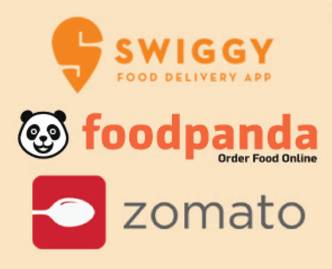

By Linus Garg
First publised on 2020-01-29 12:34:24
Food delivery platforms are going the same way as Oyo and others who were just growing without giving a thought to becoming profitable. One feels that the whole deep-discounting model (even their loyalty programmes are based on deep-discounting) is flawed as it does not lead to customer retention. With me-too platforms spawning, customers have become wise and keep scouting for deeper discounts. They change platforms at the drop of a hat, guided solely by the quantum of discount offered. Since the service provided by all platforms is the same, without any value addition on their part, it does not matter if the food is being delivered by Zomato, Swiggy, Food Panda, Fresh Menu or Faasos.
All the platforms, especially the leaders Zomato and Swiggy, have tightened their belts and are introducing dynamic delivery charges along with surge fees in some locations. Restaurant packing charges are also being hiked. Discounts are being pared and fee for loyalty cards is being increased. They are also asking for an enhanced commission from food providers. The sum of all this activity is that while the customer will have to pay more, the restaurants will get less. The platforms hope to turn the corner in this manner.
But they have not factored in several market inputs. The first thing that will put a spanner in their works is that most food providers have their own free home delivery system (although in a limited area of, say, in a 3 to 5 km radius from their outlet). They do not charge for packing. People in the locality know them and have their home delivery numbers. Bigger chains like Pizza Hut and Dominos always delivered directly and do so even now. The only difference is that these outlets do not provide deep discounts. If app platforms reduce discounts and add packing and delivery charges and if the cost to customer works out same or even marginally lesser, they would start losing customers at a rapid rate. Already, many customers have not renewed their loyalty cards as many restaurants have stopped accepting them and the fee has been hiked.
Since app platforms do not add any value to the food and are just facilitators of delivery, they do not have many avenues to attract customers. Discounting was their only option but it will never allow them to become profitable. Hence, these platforms find themselves on the horns of a dilemma. Investors will not pump in more funds if they do not turn profitable. They have to change their business model and think of other ways of customer retention. One such way is to have exclusive food providers on their platforms. But since food providers also want to maximize their turnover, they would seldom agree to give exclusive rights to a single app platform. It would be interesting to see how the issue pans out since a large number of Indians who stay alone or working couples, especially in metros, have become dependent on these platforms.











